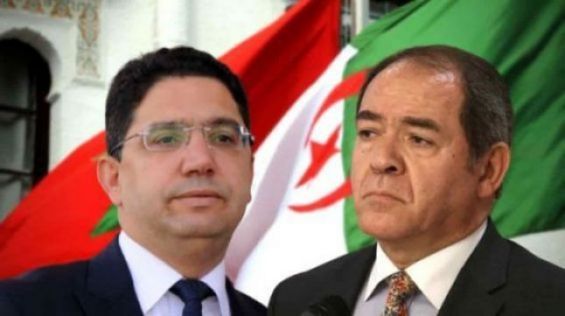When Algerian President Abdelmajid Tebboune took office, a war for influence in the Maghreb started between Morocco and Algeria. Each of these neighboring countries have been trying to score points in the regional scene.
On June 9 and while the two countries are still in the middle of their battles against the coronavirus, a highly ranked Algerian delegation flew to Nouakchott. Algeria’s Foreign Affairs Minister Sabri Boukadoum headed the ministerial delegation, which was composed of the Ministers of Finance, Trade, Tourism and Health and the president of the Algerian Agency for International Cooperation. The delegation did not come empty-handed but brought with it a cargo of medical aid.
Three days later, Rabat replied. Morocco’s Foreign Minister Nasser Bourita announced to his Mauritanian counterpart that a cargo of medical supplies will be sent to Nouakchott following royal instructions.
The timing of the two interventions is hardly a surprise. In 2018, Rabat and Algiers multiplied visits to Nouakchott in an attempt to benefit from the very promising Mauritanian market. With the opening, on August 19 of the same year, of the border post between Tindouf and Zouerate, Algiers sent, on October 24, a trade delegation led by the former Minister of Commerce Saïd Djellab to take part in the second session of the Algerian-Mauritanian business council. He also chaired the launching of the Algerian Products Fair with the participation of 170 Algerian companies.
After two months of preparation, Rabat responded with the organization in December 2018 in the Mauritanian capital of the First Moroccan-Mauritanian Economic Forum. Former Mauritanian Prime Minister Mohamed Salem Ould El Bechir also received Salaheddine Mezouar, then president of the CGEM, and the investors who accompanied him on said trip.
In Tunisia, Morocco tries to take ground
On the other side of the Maghreb, Algiers agreed Monday to reduce the price of natural gas sold to Tunisia by 10%. The Tunisian Minister of Energy had asked, on March 23, his Algerian counterpart to lower the price of gas, especially since the contract regulating gas exports to Tunis expired in December 2019. This comes less than a week after the visit carried out on June 10 by Nasser Bourita in Tunis, during which he delivered a message from King Mohammed VI to President Kaïs Saeïd.
On the Tunisian scene, Morocco has seized signals indicating that the new tenant of the Palace of Carthage does not necessarily follow in the footsteps of his predecessor Béji Caïd Essebsi, considered as pro-Algeria. Admittedly, the head of the Tunisian state booked his first official trip to Algiers on February 2, but he has since wanted to maintain good relations with Morocco.
Since he took office on October 23, 2019, telephone calls between him and King Mohammed VI have been frequent. Conversations were held on January 16, March 25 and April 25 without forgetting a verbal message delivered last week. Moroccan-Tunisian relations are not yet at the same level as in the time of President Moncef Marzouki, but Moroccan officials remain optimistic.
Libya, the other battlefield of influence
The Libyan crisis is another area of the war of influence in the Maghreb that Morocco and Algeria have been waging for years. While Rabat is so attached to the Skhirat agreement signed in December 2015 and recognized by the United Nations as the basis for a political solution to the armed conflict in Libya, Algiers offers the trail of neighboring countries. A club that brings together Algeria, Tunisia and Libya but struggles to speak with one voice. Dissonances between its members are frequent, especially after the election of Kaïs Saïed.
Since then, Tunis has also defended the Skhirat agreement. A position expressed, moreover, last week by its Minister of Foreign Affairs, Noureddine Erray, during a phone call with his Moroccan, Algerian, Egyptian and Libyan counterparts. As for Cairo, its peace plan proposed on Saturday, June 6, aims only to ensure an honorable exit to its ally Khalifa Haftar. For Algiers, the main concern is to remove Rabat from the solution.
But the war of influence between the two rival neighbors is not limited only to the Maghreb scene, but also Sub-Saharan Africa.





 chargement...
chargement...













